August 9th, 2015 by Rachel | Tags: Disability, Health, Malaria, Peace Corps | No Comments »
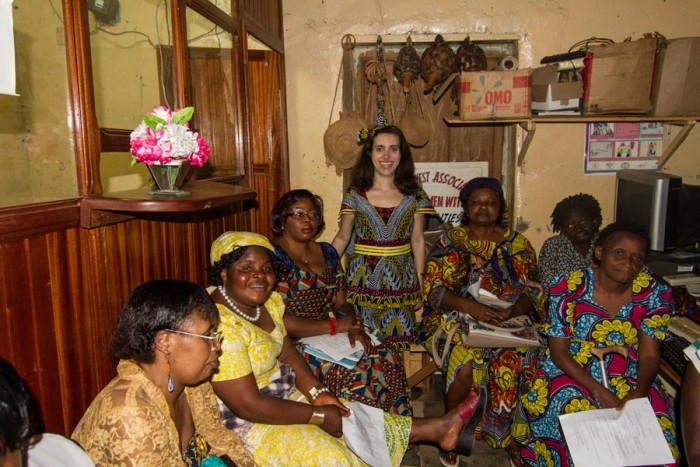
Last April, I collaborated with a disability group to host my very first malaria workshop to a group of persons with disabilities in Bamenda. This past Sunday and today, I hosted two additional malaria workshops for persons with disabilities so that I could reach out to many more persons with disabilities in Bamenda area. I collaborated with two associations, Special Needs Entrepreneur Group and Northwest Association of Women with Disabilities. I followed the same curriculum that I developed for the first workshop for the two additional workshops. This blog post will focus on the sharing the results of the pre- and post-test.
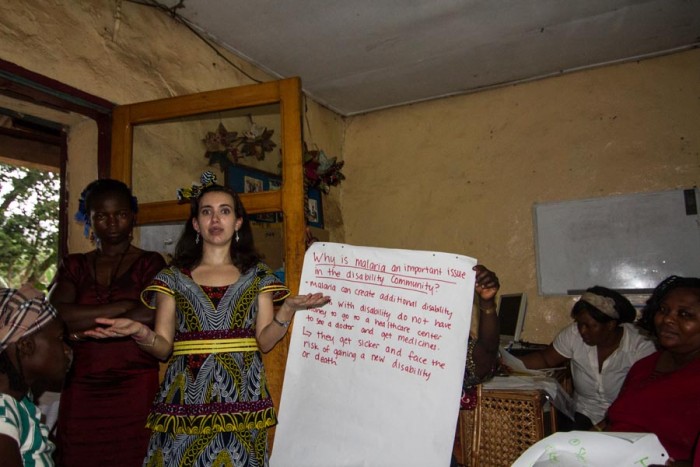
On the pre-test, almost everyone answered correctly to the question on what is malaria but most did very poorly on the other sections of the pre-test. For example, most were not able to answer correctly on how to prevent malaria and what are the symptoms of malaria. However, after giving the workshops, 11 out of 13 attendees at the second workshop scored 100% on the post-test. One additional person almost scored 100% but answered slightly wrong on how to prevent malaria by leaving out taking malaria prophylaxis as one of the options and also under what are the symptoms of malaria, the person left out nausea as one of the symptoms. Seven out of 12 attendees at the third workshop scored 100% on the post-test. Two additional attendees almost scored 100% – they answered one of the questions slightly wrong. One of them included visiting a witchcraft doctor as an option to prevent malaria and the other did not include dry cough as one of the symptoms of malaria.
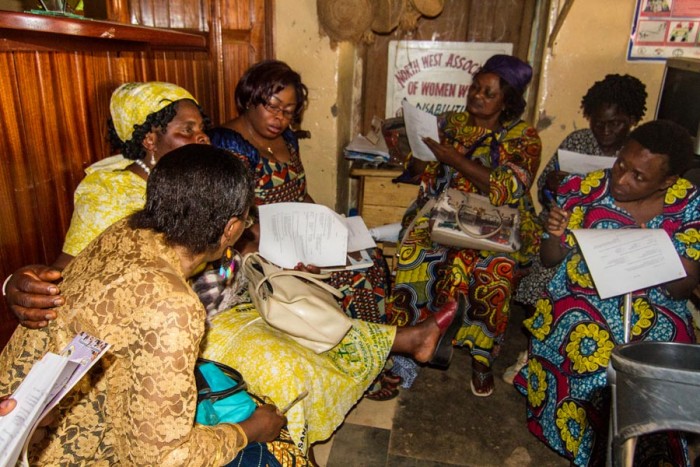
Women with disabilities take the pre-test so that the workshop could be evaluated.
At the second workshop, on the pre- and post-test, majority said that they cannot access to medication because they do not have the money and transportation access to a health center. Seven out of 13 said they do not sleep under a mosquito net on the pre-test but on the post-test, four of them said they will still not sleep under the mosquito net because most said they do not have one and do not have the money to purchase one.
At the third workshop, on the pre-test, surprisingly, only four said that they do not sleep under the mosquito net because they do not have a mosquito or do not have the money to purchase one. However, on the post-test, all four responded that they would now consider sleeping under the mosquito net which would indicate that they may get one after learning that becoming ill with malaria does cause financial hardship. Because I want to see if they do truly have a mosquito net and sleep under it, I plan to visit some of their homes to see what is the reality. Majority of the people from this group also said that they have access to medication. I have come to realization that because they were all able to come to the workshop on their own by paying for transportation with their own money, they are likely to have the financial means to pay for medication too. The ones who are likely not able to access medications are those who never leave their homes and are unable to attend the disability group meetings. I will need to see if I can figure out how I can reach out to those who never leave their homes.
While the results of the post-tests are very good, I am not sure if what they learned from the workshops will translate to behavior change. In other words, will they change the way they keep their home clean and start using a mosquito net to take preventative measures not to become ill from malaria? I will find out when I visit their homes soon.
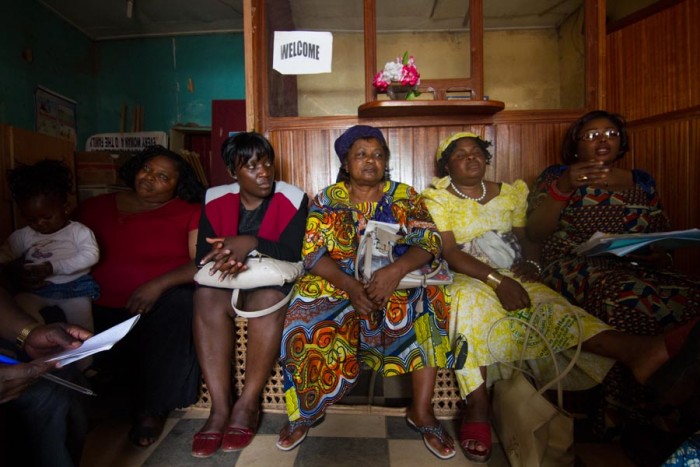
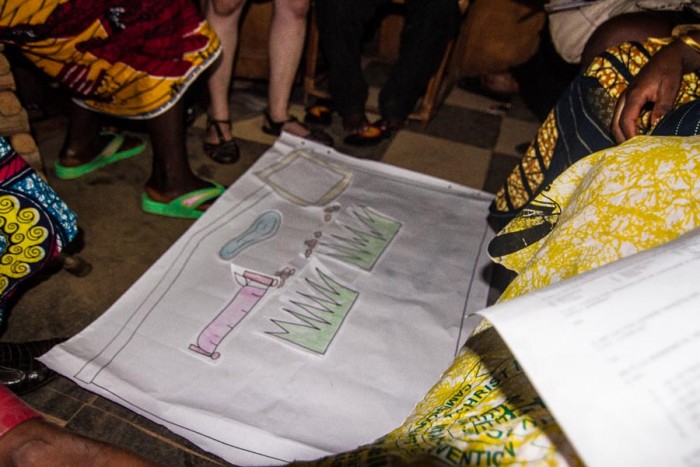
Women with disabilities identify what a home would look like if it is prone to attracting mosquitos.
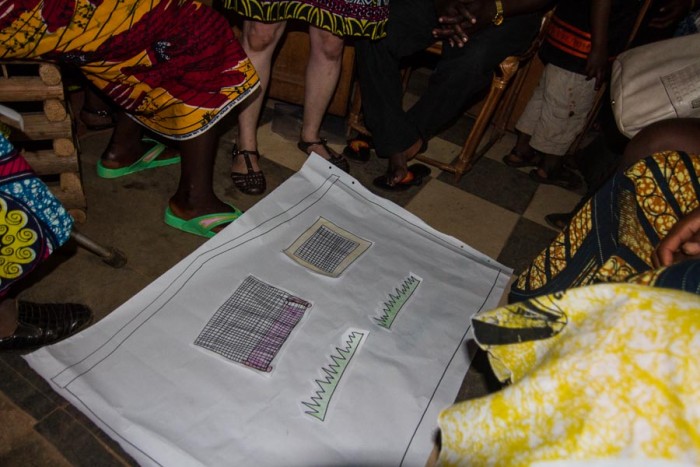
Women with disabilities identify what a home would look like if it would prevent habitants from getting malaria.






